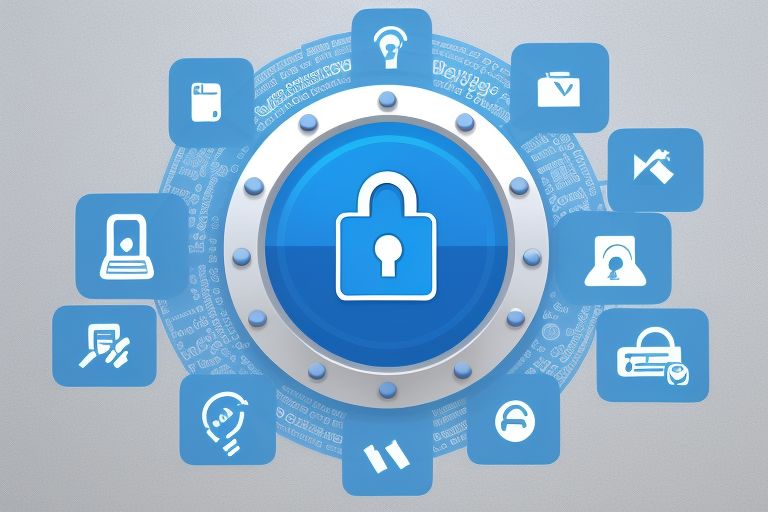In today’s digital age, privacy has become a growing concern for individuals and businesses alike. With increasing cyber threats, data breaches, and invasive tracking practices, protecting your personal information is more critical than ever. Whether you’re browsing the web, communicating online, or storing sensitive data, using privacy-focused software can make all the difference. This article delves into the best tools available to safeguard your digital footprint and enhance your online security.
Why Privacy-Focused Software Matters
Every time you go online, you leave behind a trail of data. From your browsing history to your location, this information can be collected, analyzed, and even sold to third parties. Privacy-focused software is designed to minimize this exposure by encrypting your data, blocking trackers, and ensuring anonymity. Without these tools, your personal information is vulnerable to hacking, surveillance, and misuse. Investing in the right software is not just a luxury—it’s a necessity in today’s interconnected world.
Top Privacy-Focused Software to Protect Your Data
Below is a curated list of the best privacy-focused software across various categories. Each tool is designed to address specific privacy concerns and provide robust protection for your digital activities.
1. Secure Browsers
Your browser is often the first point of contact with the internet, making it a prime target for tracking and data collection. Here are two of the most secure options:
- Brave Browser: Built with privacy in mind, Brave blocks ads and trackers by default, ensuring faster browsing speeds and enhanced security.
- Tor Browser: Known for its anonymity features, Tor routes your traffic through multiple servers, making it nearly impossible to trace your online activities.
2. Encrypted Communication Tools
Whether you’re sending emails or instant messages, encrypted communication tools ensure that only the intended recipient can access your messages.
- Signal: Widely regarded as one of the most secure messaging apps, Signal uses end-to-end encryption to protect your texts, calls, and video chats.
- ProtonMail: This email service offers end-to-end encryption, ensuring that your emails remain private and secure.
3. VPNs (Virtual Private Networks)
A VPN is essential for masking your IP address and encrypting your internet traffic. Here are two top recommendations:
- ExpressVPN: Known for its speed and reliability, ExpressVPN offers robust encryption and a strict no-logs policy.
- NordVPN: With advanced security features like double VPN and CyberSec, NordVPN is a favorite among privacy-conscious users.
4. Password Managers
Using strong, unique passwords for every account is crucial, but remembering them can be challenging. Password managers simplify this process while keeping your credentials secure.
- LastPass: This popular tool stores your passwords in an encrypted vault and generates strong passwords for new accounts.
- Bitwarden: An open-source password manager, Bitwarden offers a free plan with robust security features.
5. File Encryption Software
If you store sensitive files on your devices, encryption software ensures they remain protected from unauthorized access.
- VeraCrypt: A successor to TrueCrypt, VeraCrypt allows you to create encrypted virtual disks to safeguard your data.
- AxCrypt: This user-friendly tool encrypts individual files and folders, making it ideal for personal use.
How to Choose the Right Privacy Software
With so many options available, selecting the right privacy-focused software can be overwhelming. Here are some factors to consider:
- Your Specific Needs: Identify the areas where you need the most protection, such as browsing, communication, or file storage.
- Ease of Use: Choose software that aligns with your technical expertise. Complex tools may offer advanced features but can be challenging to navigate.
- Reputation and Reviews: Research the software’s track record and read user reviews to ensure it’s reliable and effective.
- Cost: While some tools are free, others require a subscription. Weigh the benefits against the cost to make an informed decision.
Real-World Benefits of Using Privacy-Focused Software
Investing in privacy-focused software offers numerous advantages beyond just security. Here are a few examples:
- Protection from Identity Theft: Encrypting your data and masking your online activities reduces the risk of identity theft.
- Freedom from Targeted Ads: Blocking trackers ensures you’re not bombarded with personalized ads based on your browsing habits.
- Peace of Mind: Knowing your data is secure allows you to browse, communicate, and work online with confidence.
Common Misconceptions About Online Privacy
Despite the growing awareness about privacy, many misconceptions persist. Let’s debunk a few of them:
- “I have nothing to hide, so I don’t need privacy tools.” Privacy isn’t just about hiding sensitive information—it’s about protecting your right to control your data.
- “Free software is just as good as paid options.” While free tools can be effective, they may lack advanced features or have hidden costs, such as selling your data.
- “Using a VPN makes me completely anonymous.” A VPN enhances your privacy but doesn’t make you untraceable. It’s essential to use it alongside other privacy tools.
Future Trends in Privacy-Focused Software
As technology evolves, so do the strategies to protect your privacy. Here are some trends to watch out for:
- Decentralized Networks: Tools like blockchain are paving the way for decentralized platforms that reduce reliance on central servers.
- AI-Powered Security:












Leave a Reply